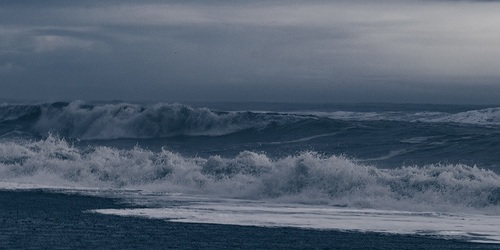

Whales are massive creatures that rule the oceans. Some feed on the smallest of organisms like krill and plankton, while others eat larger items such as fish. Depending on their diet, whales have evolved to have a certain teeth depending on what they eat. Due to the increase amount of pollution in our waters, a type of whale called Eden's whale has a bizarre and creative feeding strategy to consume food without consuming the pollution that is floating in the waters.
Sadly, pollution from land has ended up in the oceans all over the world and it has driven species of fish to the surface where the oxygen concentration is higher, so they are able to live and breathe. Eden's whales scoop up these fish but have to swallow lots of water to catch their pray. When the fish numbers are low, it is hardly worth the effort and they also have to consume the pollution in the waters, that could make them very sick. These whales have now opted for an alternative method to get their food.
"By opening their mouths at the surface like a giant basketball hoop, the whales can spook the fish making them leap into the air and straight into their mouth. The behavior was being practiced by lone whales and even mothers and calves, who benefited from having a partner to swim around and scare more fish into jumping into their gaping mouth. Amazingly, birds will even cash in on the feeding events by swooping down and grabbing fish from inside the whale’s mouth. It's a rough deal for the oxygen-starved fish but a breathtaking example of how wild animals can learn to overcome anthropogenic-driven changes in the environment," the article mentions.




